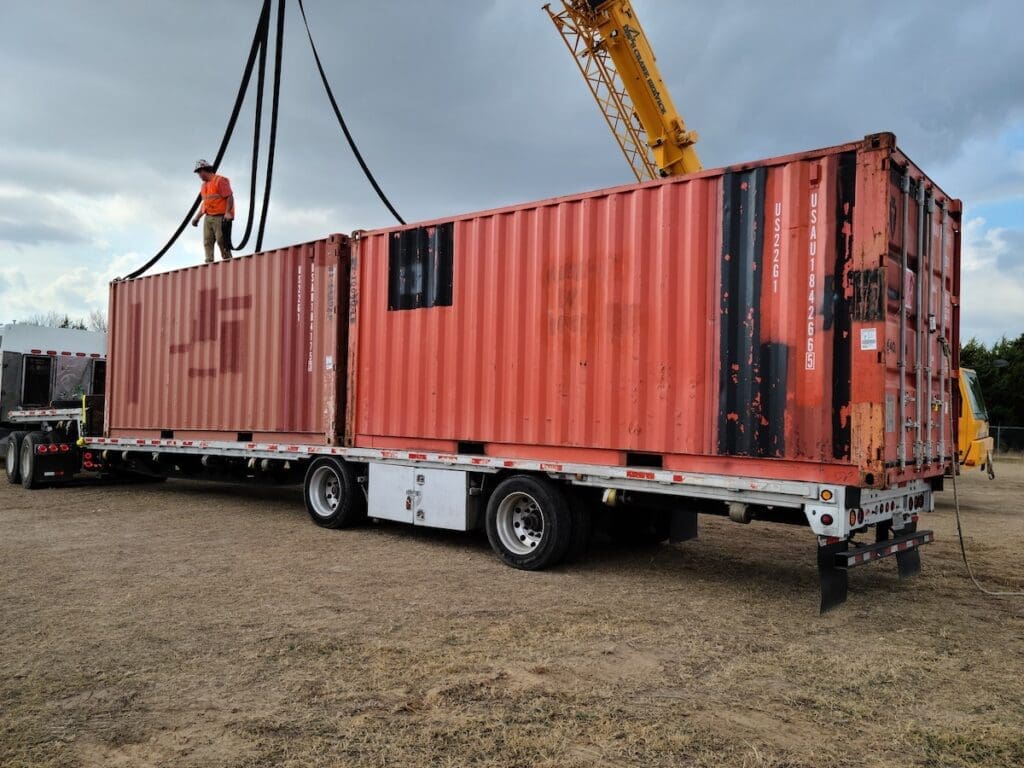Generating more than $20 billion in annual revenue from its some 750 locations across 44 states, Pilot Flying J was No. 15 on the Forbes list of top privately owned US companies. In October last year, this truck stop chain earned another distinction: being one of the most corrupt, according to charges filed in federal court.
You may wonder why we are bringing up this ongoing story, which at this time a Knoxville jury is deliberating charges related to conspiracy and fraud. It’s as if Blockchain had been implemented, there is no way Pilot Flying J could have bilked carriers, mostly small sole proprietorships, of $92 million over five years.
Do not believe that this is not a shipper problem. It is. Truck freight rates are directly linked to a number of factors, including fuel contracts and prices. When the carrier gets gouged, so does the broker and the shipper, albeit indirectly, and even the consumer.
The Pilot Flying J diesel sales team inked contracts with medium and small-sized carriers, requiring a certain number of gallons be purchased to receive a rebate that was tied to the wholesale market rate. As FreightWaves.com reported, the math was complicated as it included state and local retail fuel taxes, pumping fees and tracking the daily fluctuations of the diesel wholesale market. The carriers simply handed over their spend tabulations to Pilot Flying J, trusting that the fuel supplier would send back a check for the correct amount. It didn’t, on purpose.
What is Blockchain?
Before it received its more popular name, Blockchain was known as distributed ledger technology (DLT). It is a software platform for digital assets, in other words, data. What sets DLT apart from anything that has come before is that the data is decentralized across a network of computers that communicate peer-to-peer, making the data incorruptible, transparent, and secure.
Each transaction is always recorded as a block in a chronological chain of transactions, which anyone who possesses a cryptologic digital key that has been granted access can view and verify, but not alter the ledger. Prior to the first transaction in the chain taking place, rules that will apply to every transaction are set and also unalterable, making the process automatic and beyond the reach of.
This system is so secure that it is universally used by cryptocurrencies such as BitCoin. If one computer in the network goes offline, no worries. There is a copy of the blockchain, the complete digital ledger of transactions, on another computer, and then another, and so on. Nothing is lost. Ever.
Financial Uses in Truck Shipping
Let’s begin by returning to the case of Pilot Flying J. Each transaction between the carrier and the truck stop chain was governed by a rebate for gallons contract, which is nothing more than an agreed-to set of rules. In reconciling the accounts with the contractual rules, Pilot Flying J employees are in criminal legal jeopardy for allegedly manually cooking the ledgers. It is also alleged that they chose their victims based on whether they were able to verify the authenticity of the rebates received.
If the transactions occurred using the Blockchain platform instead, the contractual rules would be in place, transparent, and unalterable. Therefore the per gallon payments would have been automatically indexed to that day’s wholesale diesel price, and tabulated to include the proper federal, state, and local taxes, as well as the agreed to pumping fee. The rebate would then have been automatically disbursed to the carrier, with every aspect of the inalterable transaction available for inspection.
When carriers can accurately forecast their fuel costs, they can also set shipping rates that reflect that accuracy. What’s more, when carriers, brokers, and shippers start using Blockchain technology, every monetary transaction will be transparent, and automatically harmonized to the contractual rules. The process will no longer be based on hope.
More Blockchain Uses That Will Help Everyone
We all know that in addition to the financials, the actual shipping processes from picking to permitting, monitoring climate control to securing the shipment, right through to the end of the last mile is fraught with risks, great and small. Blockchain combined with the Internet of Things (IoT) can and will give everyone involved accurate visibility and the ability to communicate and cooperate in real time seamlessly. These really are the final days of the fax.
At Next Exit Logistics, our slogan is “we don’t just ship boring.” We specialize in arranging transportation for the difficult, unique, unusual, and impossible shipments. The shipments we manage can be turbine shafts, construction equipment, or basically anything that is oversized, over height, or overweight that are hauled across multiple jurisdictions before reaching the final destination.
Like many other shipment specialties, our business has its own very specific complications and legal requirements that must be cross-coordinated across a variety of private industry and official stakeholders. Carriers with certified heavy haul skills, experience, and the correct equipment must engage and schedule. Insurance, routing, permitting, and often law enforcement escort vehicles are all pieces of the same puzzle.
At every step, official legal documents and contracts are generated and authorized, and fees paid to ensure a smooth event-free journey. Blockchain will allow the entire team to work in tandem and in real time to prepare, organize and execute the shipment, including tracking and shipment condition in one secure and virtual location. As everyone will have visibility, every contribution to moving the process forward will be transparent, therefore compliant and more efficient and accurate, and therefore less costly.
Blockchain will also hamper the efforts of ghost carriers because they can no longer simply surf Facebook or sift through cargo boards looking for an easy target. Very specific pickup instructions, with photo IDs, and more can be put in place, unveiling imposter drivers.
Timing
All the freight tech pundits are saying Blockchain for transportation is in its infancy. So when will Blockchain be standard? Just like with autonomous trucks, likely sooner than everyone thinks.
Blockchain is no longer the domain of only crypto currencies. Fortune magazine has reported that IBM has created a full suite of Blockchain enterprise solutions that are on the IBM Cloud. Wal-Mart and Visa are already testing Blockchain in supply chain management and financial transactions. Microsoft has made it easier for their financial institutional customers to use Blockchain technology on its Azure Cloud.
Last year, the Blockchain in Transport Alliance (BiTA, formerly called the Blockchain in Trucking Alliance) formed to develop standards specifically for the freight sector. The organization has experienced a surge in membership applications from trucking, shipping, logistics brokers, warehousing and technology organizations. They know the future is now.
Before, during, and after Blockchain is deployed, we at Next Exit Logistics work with our clients transparently to make freight transportation dependable, secure and affordable, not an exercise in hopes and prayers. We can arrange the shipping of any item; we specialize in providing freight services for unusual and impossible oversize or overweight shipments! Our customers say that time and time again, Next Exit Logistics eliminates frustration by managing the freight shipping process from beginning to end.
Our seasoned background as a freight management brokerage is backed by our safety and on time track records for organizing the movement of heavy haul freight quickly and efficiently. What’s more, we are certified to arrange the shipment of hazardous materials.
To learn more about our services, call Next Exit Logistics at 866-624-2661. You can also contact us via e-mail.




